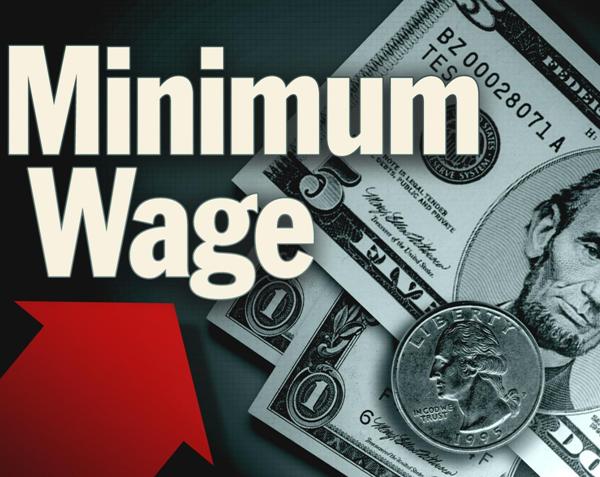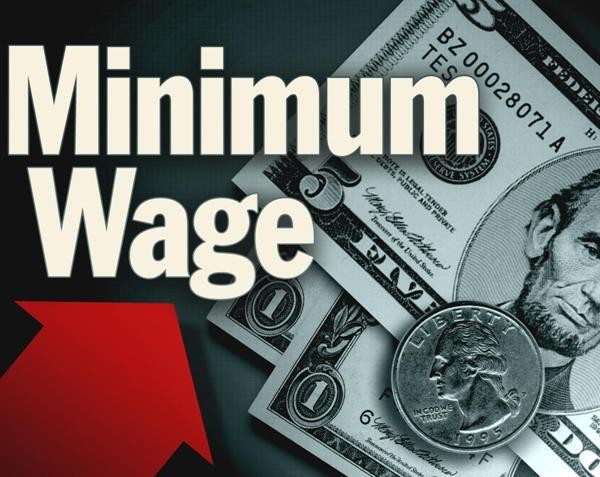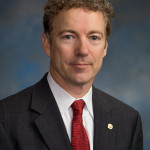The federal minimum wage peaked in 1968 when it reached $1.60.[ref]“Minimum wage since 1938,” CNN Money, 2013, http://money.cnn.com/interactive/economy/minimum-wage-since-1938/[/ref] If you adjust for inflation that’s an impressive $10.79. However, the current federal minimum wage sits at $7.25 – thirty-two percent less than it was forty-seven years ago. And while it has increased twenty-one percent since 1990, so has the cost of living – by sixty-seven percent.[ref] “Overworked America: 12 Charts That Will Make Your Blood Boil,” Mother Jones, July/August 2011, http://www.motherjones.com/politics/2011/06/speedup-americans-working-harder-charts[/ref] Nineteen million U.S. workers currently earn at or below the federal minimum wage, with nearly half of them being over twenty-four years old.[ref] “5 Facts about the Minimum Wage,” Pew Research, December 2013 http://www.pewresearch.org/fact-tank/2013/12/04/5-facts-about-the-minimum-wage/[/ref] President Obama has called on Congress to raise the wage to $10.10 an hour, arguing it would increase the earnings of working individuals and families, effectually growing the economy. Indeed, minimum wage hikes is a hotly contested issue due to the notoriously inconclusive effects on local economies. But what cannot be contested is the vendetta — the cost of living has outpaced the minimum wage and has not seen a significant increase in nearly ten years: What can we do to reduce poverty, improve the economic security for the workers, and continue to grow the economy?
The current fight to increase the federal minimum wage has stalled in the Republican controlled Congress, shifting efforts over to state and municipal governments to increase their own local minimum wages. These labors have brought about stories of shuttered businesses, increased prices for goods, and unemployment for the low or unskilled worker. These arguments have been made each and every time. However, each time the minimum wage is increased, the doomsday predictions never fully pan out.[ref] “Studies Look at What Happened when Cities Raised Minimum Wage,” The Seattle Times, March 2014, http://www.seattletimes.com/seattle-news/studies-look-at-what-happened-when-cities-raised-minimum-wage/[/ref] But what has been happening recently is a growing disparity between the haves and have-nots. While revenue, gross domestic product, and productivity, have continued to climb, wages have remained stagnant.[ref] “The Great Decoupling of the US Economy,” Andrew McAfee, December 2012, http://andrewmcafee.org/2012/12/the-great-decoupling-of-the-us-economy/[/ref]
Proponents of an increase in the minimum wage understand that there is a real limit to how high it can go before it adversely effects the economy and employment, but “evidence suggests we’re nowhere close to that tipping point.”[ref]“As Cities Raise Their Minimum Wage, Where’s the Economic Collapse the Right Predicted?” Mother Jones, April 2015, http://www.motherjones.com/kevin-drum/2015/04/economic-collapse-prediction-minimum-wage-raise[/ref] Indeed, researchers are unsure what will happen when Seattle’s minimum wage eventually reaches $15 an hour in 2018, but studies have shown that effects on employment are mostly neutral up until $13 per hour. The most noticeable change researchers have seen is an increase in the cost of eating out, as restaurants tend to work on thinner margins, with payroll being one of the larger overhead expenses.[ref] Lynn Thompson, Seattle Times, March 12, 2014, accessed May 21, 2015, http://www.seattletimes.com/seattle-news/studies-look-at-what-happened-when-cities-raised-minimum-wage/.[/ref]
It can be conceded that an increase in minimum wage places some small businesses in the position of having to slim down operations, or shut down entirely. Local community stores, such as San Francisco’s science-fiction bookstore Borderlands Books[ref] “Will a Higher Minimum Wage Close a Beloved Bookstore?” The New Yorker, February 2015, http://www.newyorker.com/business/currency/minimum-wage-dilemma-san-francisco[/ref] and comic-book shop Comix Experience,[ref]“Do Small Businesses Deserve Exemptions From the Minimum Wage?” Mother Jones, May 2015 http://www.motherjones.com/kevin-drum/2015/05/small-businesses-exemptions-minimum-wage[/ref] are facing this reality in light of a vote to increase the minimum wage from $10.74 to $15 an hour by 2018. Both shop owners support an increase in minimum wage, in one way or another, and Borderlands owner Alan Beatts understands that “[t]here are tens of thousands of people in this city that are going to benefit” from the increase. Niche independent bookstores face an unusual amount of pressure from the minimum wage increase due to the already present competition from the likes of Amazon and other e-book venders. Beatts and Comix Experience owner Brian Hibbs proposed alternatives to the current minimum wage increase. Both have suggested tiered minimum wages for small and large businesses determined by calculating net-profit or a guaranteed income paid for by progressive taxes. Both are attractive alternatives, and one could even argue supplements to a minimum wage, but there still lies a necessity to set a bare minimum for how much a person can be paid for each hour of work — and that amount has lost its value over the years.
The more extreme end of the opposition spectrum argues for the abolishment of the minimum wage, asserting that it prevents U.S. workers from competing with other workers in the global economy, such as in China, Mexico, and India, where the minimum wage standards are set at $0.80, $0.60, and $0.28 an hour, respectively.[ref] “Here’s How America’s Minimum Wage Stacks Up Against Countries Like India, Russia, Greece, And France” Business Insider, August 2013, http://www.businessinsider.com/a-look-at-minimum-wages-around-the-world-2013-8[/ref] Although this contrarian view on the minimum wage is held by a minority, it is one held by presidential hopefuls such as Senator Rand Paul, Senator Marco Rubio,[ref] “Marco Rubio says He Opposes Minimum Wage Laws. What About the Other GOP 2016 Hopefuls?” Daily Kos, February 2013, http://www.dailykos.com/story/2013/02/14/1187136/-Marco-Rubio-says-he-opposes-minimum-wage-laws-What-about-the-other-GOP-2016-hopefuls[/ref] and Governor Jeb Bush.[ref] “Jeb Bush Calls For The Elimination Of The Federal Minimum Wage,” Think Progress, March 2015 http://thinkprogress.org/economy/2015/03/17/3634877/jeb-bush-minimum-wage/ [/ref]
A more mainstream argument opposing an increase in the minimum contests that low-skill teens and youths looking to gain experience will be mostly affected, as employers will be less inclined to hire unskilled workers.[ref]“Sen. Cruz: Minimum Wage Hike Would Cost Jobs for Young People, Hispanics, African Americans” CNS News, February 2013, http://cnsnews.com/news/article/sen-cruz-minimum-wage-hike-would-cost-jobs-young-people-hispanics-african-americans[/ref] What is failed to be discussed are bills, such as the Fair Labor Standards Act (FLSA), that “allows employers to pay employees under twenty years of age a lower wage [of $4.25 an hour] for a limited period” for the first ninety days of their employment, which grants employees time to gain the skill and knowledge for the job.[ref]“Fact Sheet #32: Youth Minimum Wage – Fair Labor Standards Act,” U.S. Department of Labor, July 2008, http://www.dol.gov/whd/regs/compliance/whdfs32.pdf [/ref]
The effects of the $15 minimum wage in Seattle and San Francisco are yet to be seen. But the facts illustrate that previous increases have not brought the country to a grinding halt or cause skyrocketing unemployment. Simply stated, the wage is too damn low. And with the modest proposal of a federal minimum wage of $10.10 an hour, the solution is abundantly clear: it’s time to raise the wage.
Take Action:
Raise the Wage part of the White House main website, offers a pledge that you can sign to get the U.S. federal minimum wage increased. Visit the site today to not only sign the pledge, but to learn more about this topic.





